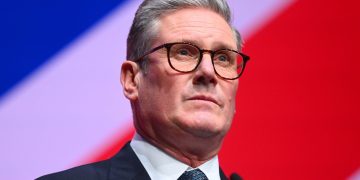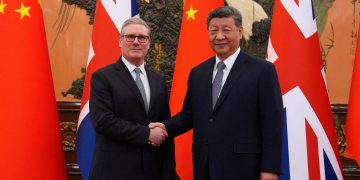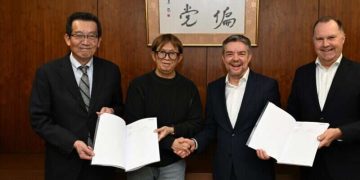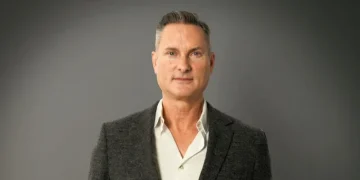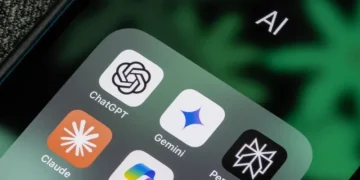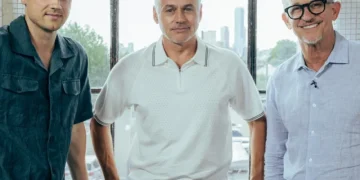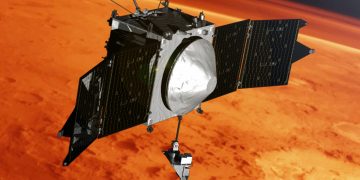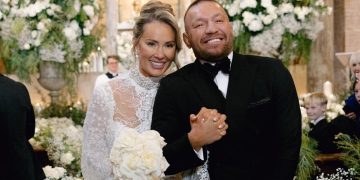
Intergenerational programs were once looked upon as a way to cultivate community ties between elders and youth. However, in an era defined by the climate crisis, a new type of intergenerational program is emerging with a common purpose to modernize our communities. In the last three months alone, we’ve witnessed the ravages of the Maui wildfires, Typhoon Saola in China, and the floods in Libya. With an increasing number of hurricanes, wildfires, and floods worldwide, the climate crisis has become a looming reality in many parts of the world.
What’s more, the burden of responsibility weighs heavily on the shoulders of the youth, who are on track to inherit a damaged planet. Gen Z and Gen Alpha are growing up in a world increasingly destabilized by natural disasters and they report high levels of climate anxiety. Amid the rising fears and uncertainties, a remarkable non-profit organization, Gen Unison, is working tirelessly to bridge the generational gap through intergenerational activities for seniors and youth.
Rising Climate Change Anxiety Confronts Apathy
Climate anxiety, sometimes called eco-anxiety, has directly impacted the mental health of our youth. According to public polls, a staggering 88% of Gen Z (born 1996-2012), experience the highest level of climate change anxiety compared to Millennials, Gen X, Baby Boomers, and the eldest Silent Generation.
Generation Z is coming of age in a world characterized by extreme weather events, wildfires, hurricanes, and droughts that seem to occur with increasing frequency and intensity. It’s no surprise, then, that they’re expressing fear and resentment over inheriting an unstable world from older generations. This fear and resentment is manifested in increased climate activism among the youth, with climate lawsuits leveled against governments worldwide and increased protests regarding climate policies.
This generational divide over the climate crisis isn’t discussed between older adults and our youth. Intergenerational programming is essential for creating the occasion for youth and elders to communicate about this growing stress among the younger generations.
A Call to Action for the Youth
Gen Z and Millennials make up the majority of participants in the climate crisis protests in recent years. According to the Pew Research Center, nearly ¾ of Gen Z and Millennials combined believe that climate change is the number one priority in our society. They recognize the need for immediate action to combat the climate crisis.
However, slightly over half of their elders from the Baby Boomer and Silent Generation believed that mitigating climate change was the top priority. This disconnect in priorities stalls climate change initiatives, which is why intergenerational programs are essential for bridging the generation gap. Through intergenerational activities for seniors and youth, elders are able to listen to the concerns of young people directly. These exchanges have a way of changing minds and mobilizing action on a community level.
Gen Unison’s Vision for Intergenerational Collaboration
Gen Unison has emerged as a beacon of hope when facing this generational divide by creating occasions for the generations to meet. By pioneering efforts to unite generations, Gen Unison is driving meaningful projects aimed at stabilizing communities during climate change. Gen Unison’s mission is to foster collaboration between our generations and create solutions that combine the wisdom of the elders with the energy of the youth for a more resilient future.
Creating Real Impact with Intergenerational Projects
While Gen Unison has built a social media network for different generations to have impactful discussions regarding climate change, that’s not all Gen Unison provides. Gen Unison is an organization that is taking concrete steps towards addressing the climate crisis.
They bring together intergenerational teams to embark on projects that have a lasting impact. For example, Gen Unison recently completed a documentary in Machu Picchu, Peru to find solutions for the melting glaciers that supply fresh water to the communities surrounding Cusco.
Solutions include building large reservoirs to store water for farmers as well as covering waterways to prevent evaporation. Without water, these communities will not survive in the next 10-20 years. By premiering documentaries of intergenerational programs that are helping actual communities, Gen Unison hopes to inspire other communities to take matters into their own hands.
Another key area of Gen Unison’s work is the development of renewable energy. They are currently setting up a new program in Mexico for the installation of solar panels in schools and farmer communities, thereby reducing the risk of power outages during extreme weather events. By empowering communities with clean and sustainable energy sources, they not only combat climate change but also enhance the resilience of local infrastructure.
Gen Unison also recognizes the therapeutic and community-building value of food gardens. Among their popular projects is the planting of intergenerational gardens that bring together the young and old, fostering relationships while cultivating a deeper connection with nature. Not only are gardens fun activities for seniors and youth, but the gardens also serve as symbols of unity and sustainability.
In addition to these hands-on projects, Gen Unison offers access to online support groups and healing circles via platforms like Zoom. These spaces provide a safe and supportive environment for individuals to share their fears and anxieties about climate change. Additionally, with mentor-matching services, Gen Unison connects young climate activists and aspiring climate leaders with elders who have the funding, knowledge, and skills to drive successful climate projects. This mentorship empowers the youth with the guidance and resources necessary to make a meaningful impact.
Gen Unison is not your everyday non-profit organization. It’s a movement that is bridging the generational gap with the ultimate goal of shaping the future of our planet. In a world plagued by climate change anxiety and increasingly misaligned priorities, Gen Unison’s work is a testament to the power of collaboration between generations. Through their innovative projects, mentorship programs, and support networks, they are creating a sustainable path out of the climate crisis. As we confront the challenges of climate change together, Gen Unison stands out as a pillar of strength and unity in the face of adversity, offering hope and stability to a world in need.
By joining Gen Unison’s social network, you can be a valuable part of this solution to climate change.
Meet G.K. Hunter: visionary healer, author, and founder of Gen Unison
G.K. Hunter’s transformative journey as a healer and group facilitator has left an indelible mark on the landscape of intergenerational understanding and community empowerment. Widely recognized as the author of “Healing Our Bloodlines: The 8 Realizations of Generational Liberation,” Hunter’s impact spans two decades of profound work, where he has delicately navigated the realms of healing with Jewish Holocaust Survivors, indigenous communities of North and South America, the homeless, and combat veterans.
Experienced in the practice of Bloodline Healing, Hunter has developed a meticulous step-by-step process for liberating individuals from the invisible burdens carried through generations, paving the way for purposeful and liberated lives.
Hunter’s narrative extends beyond the pages of his book, as he assumes the role of the writer/director of the PBS documentary “Sakura & Pearls: Healing from World War II.” This compelling documentary unravels the extraordinary exchange between Japanese atomic bomb survivors and American survivors of Pearl Harbor, offering a profound exploration of reconciliation and inspiring crucial dialogues about breaking free from the painful cycles of history.
Beyond these impactful endeavors, G.K. Hunter has actively engaged with global platforms, delivering thought-provoking presentations at venues such as the United Nations Permanent Forum on Indigenous Issues, Cornell University, The LA Museum of the Holocaust, and Pacific Historic Parks’ “History Talks.” His appearances on NPR’s “All Things Considered” have further solidified his reputation as a sought-after speaker on issues of healing, reconciliation, and intergenerational understanding.
As the visionary founder of Gen Unison, Hunter continues to pioneer innovative approaches to bridging generational gaps and fostering trust within communities. Gen Unison is a symbol of his commitment to creating a future rooted in understanding, unity, and purpose. Through Gen Unison’s community projects, Hunter invites individuals to explore shared histories and release the burdens they carry. By creating a world where generations collaborate harmoniously, G.K. Hunter is contributing to a brighter and more connected future for all.



